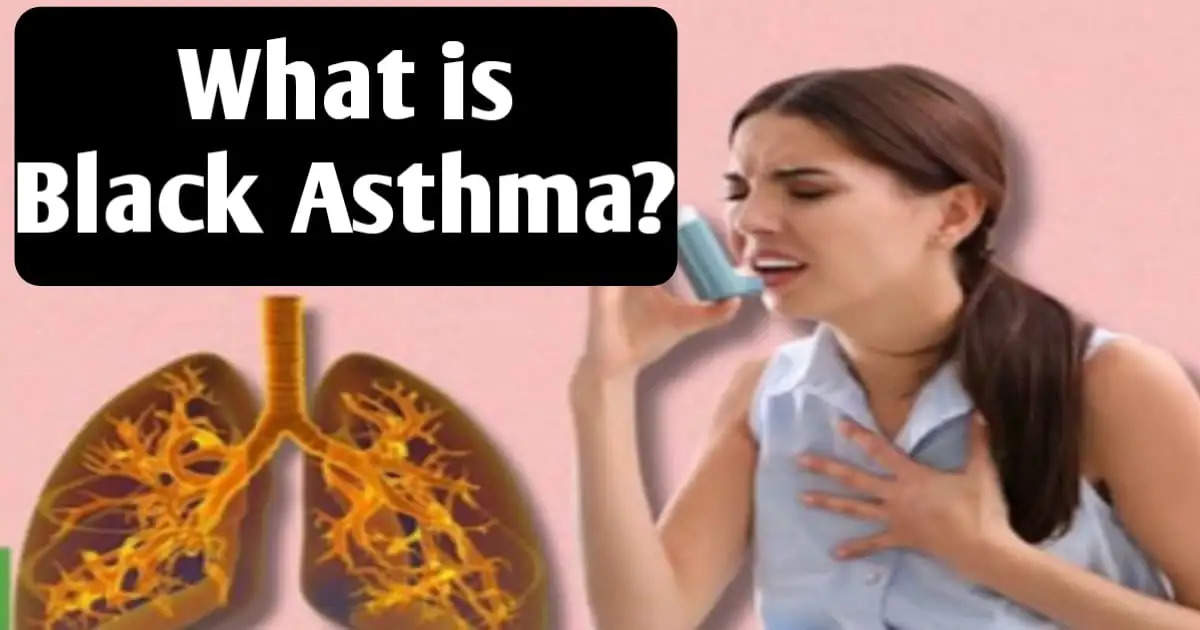What Is Black Asthma and Can It Lead to Death? Find Out

Black Asthma: The level of air pollution has increased rapidly in Delhi-NCR for the last few months. Due to this, people may have to face many types of respiratory diseases. Due to pollution and cold, cases of black asthma have increased rapidly in the Delhi-NCR region. Black asthma is also known as Kala Dama. It is a serious lung disease, which occurs due to low temperatures in winter.
Apart from this, this disease can also be caused by pollution and dust particles present in the air. What is black asthma? What are its symptoms and prevention measures? Let us know in detail about all the information related to black asthma -
What is black asthma?
Black asthma is known as Chronic Obstructive Pulmonary Disease (COPD) in medical language. The term 'black asthma' is not officially recognized in medical terminology. However, it is used by people in colloquial language. Chronic obstructive pulmonary disease is a condition in which there is inflammation in the lungs and narrowing of the airways.
This can cause reduced airflow and a person may have difficulty breathing. This disease gradually becomes severe and takes the form of a chronic disease. If it is not treated on time, then this disease can also cause death of the person.
Causes of Black Asthma:
Generally, COPD is associated with long-term exposure to harmful gases and pollutants. This includes long-term exposure to harmful substances such as cigarette smoke, biomass fuels, and air pollution, which contribute to the development and worsening of respiratory conditions. Apart from this, genetics also plays an important role. This means that individuals who have a family history of respiratory problems are more likely to develop symptoms like COPD or asthma.
Why are black asthma cases increasing?
Several factors can be attributed to the increasing prevalence of black asthma. Environmental pollution, particularly exposure to air pollutants such as particulate matter and allergens, significantly increases respiratory problems.
Climate change has contributed to longer pollen seasons and higher allergen levels. In addition, lifestyle factors such as a sedentary lifestyle, poor diet, and obesity are also responsible. Delays in diagnosis, limited access to advanced treatment, and antimicrobial resistance make the management of COPD more complex.
Symptoms of black asthma:
Difficulty breathing
Persistent cough
Chest tightness
Extreme fatigue
Frequent lung infections
Treatment of black asthma:
Medications such as corticosteroids, biologics, and bronchodilators are used to treat black asthma. Apart from this, you can also avoid COPD by weight management, regular exercise, and reducing exposure to allergens and pollutants. Emergency care such as oxygen therapy or mechanical ventilation may be necessary in some severe cases. According to Tetsuya Yamada, MD, Omron Healthcare India, nebulizer therapy can provide a safe and efficient solution for managing respiratory diseases like COPD.
Vapor drawn from the nebulizer delivers the medicine to the upper and lower respiratory tract, relieving breathing difficulties. It gives effective results for conditions like asthma and chronic obstructive pulmonary disease (COPD). It is especially beneficial for vulnerable groups like the elderly and children.
